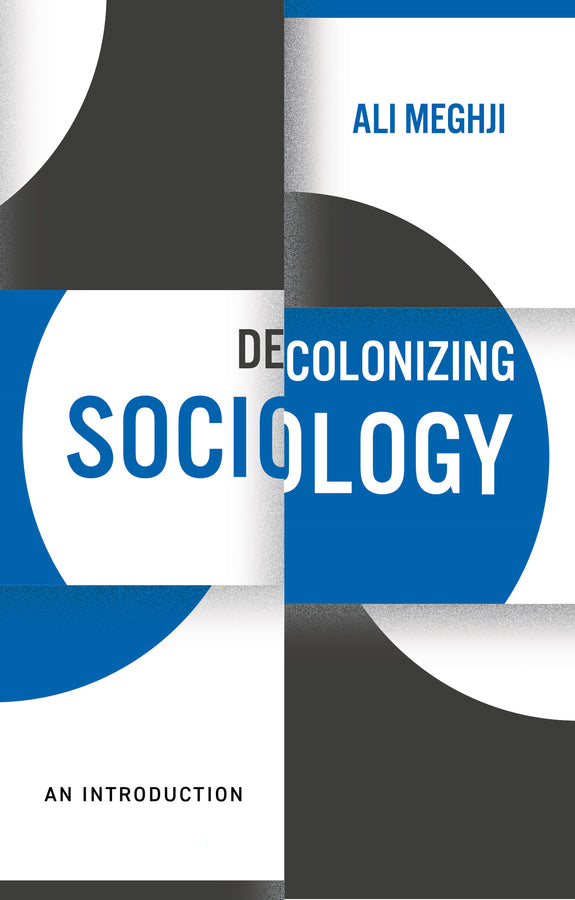Description
Discover a transformative perspective on sociology with 'Decolonizing Sociology.' This essential text delves into the deeply rooted colonial practices within the sociological discipline that originated during a time of global colonialism and imperialism. Despite over a century of evolution, these colonial legacies persist, influencing both theory and practice in sociology. Author Ali Meghji meticulously examines how traditional sociological narratives have perpetuated colonial stereotypes, framing colonized individuals as barbaric or inferior. This thought-provoking book encourages readers to recognize the lingering impacts of colonialism on modern sociology and highlights the urgent necessity of decolonization in academic curricula. 'Decolonizing Sociology' provides insights into how the Eurocentric sociological canon has overshadowed valuable theories from the Global South, illustrating the critical importance of inclusivity in sociological discourse. By engaging with underrepresented thinkers and advocating for innovative teaching methods, this work serves as a guide for students, educators, and practitioners seeking to foster equity in sociology on a global scale. This is a must-read for anyone passionate about social justice and scholarly integrity in sociology. Order now to embrace a decolonized approach to the discipline! Note: Shipping for this item is free. Please allow up to 6 weeks for delivery. Once your order is placed, it cannot be cancelled. Condition: BRAND NEW. ISBN: 9781509541959. Year: 2020. Publisher: John Wiley & Sons (UK). Pages: 200.
Note: Shipping for this item is free. Please allow up to 6 weeks for delivery. Once your order is placed, it cannot be cancelled.
Condition: BRAND NEW
ISBN: 9781509541959
Year: 2020
Publisher: John Wiley & Sons (UK)
Pages: 200
Description:
Sociology, as a discipline, was born at the height of global colonialism and imperialism. Over a century later, it is yet to shake off its commitment to colonial ways of thinking.
This book explores why, and how, sociology needs to be decolonized. It analyses how sociology was integral in reproducing the colonial order, as dominant sociologists constructed theories either assuming or proving the supposed barbarity and backwardness of colonized people. Ali Meghji reveals how colonialism continues to shape the discipline today, dominating both social theory and the practice of sociology, how exporting the Eurocentric sociological canon erased social theories from the Global South, and how sociologists continue to ignore the relevance of coloniality in their work.
This guide will be necessary reading for any student or proponent of sociology. In opening up the work of other decolonial advocates and under-represented thinkers to readers, Meghji offers key suggestions for what teachers and students can do to decolonize sociology. With curriculum reform, innovative teaching and a critical awareness of these issues, it is possible to make sociology more equitable on a global scale.
Note: Shipping for this item is free. Please allow up to 6 weeks for delivery. Once your order is placed, it cannot be cancelled.
Condition: BRAND NEW
ISBN: 9781509541959
Year: 2020
Publisher: John Wiley & Sons (UK)
Pages: 200
Description:
Sociology, as a discipline, was born at the height of global colonialism and imperialism. Over a century later, it is yet to shake off its commitment to colonial ways of thinking.
This book explores why, and how, sociology needs to be decolonized. It analyses how sociology was integral in reproducing the colonial order, as dominant sociologists constructed theories either assuming or proving the supposed barbarity and backwardness of colonized people. Ali Meghji reveals how colonialism continues to shape the discipline today, dominating both social theory and the practice of sociology, how exporting the Eurocentric sociological canon erased social theories from the Global South, and how sociologists continue to ignore the relevance of coloniality in their work.
This guide will be necessary reading for any student or proponent of sociology. In opening up the work of other decolonial advocates and under-represented thinkers to readers, Meghji offers key suggestions for what teachers and students can do to decolonize sociology. With curriculum reform, innovative teaching and a critical awareness of these issues, it is possible to make sociology more equitable on a global scale.

